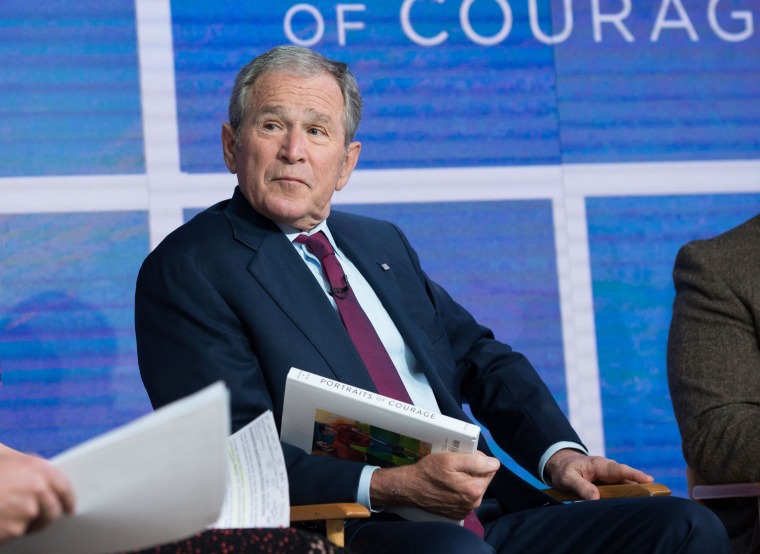George W. Bush has maintained a rather low profile since leaving the presidency, especially as compared to some of his modern brethren. His relative reticence made it all the more notable when Bush released a professionally produced video over the weekend. As the New York Times reported:
Former President George W. Bush called on Americans on Saturday to put aside partisan differences, heed the guidance of medical professionals and show empathy for those stricken by the coronavirus and the resulting economic devastation. In a three-minute video message, Mr. Bush, who rarely speaks out on current events, struck a tone of unity....
"Let us remember how small our differences are in the face of this shared threat," the Republican said over stirring images. "In the final analysis, we are not partisan combatants. We are human beings, equally vulnerable and equally wonderful in the sight of God. We rise or fall together and we are determined to rise."
It was an anodyne message, rooted in patriotism, that even Bush's critics -- a group that I associate with -- found unobjectionable.
And yet, there was Donald Trump yesterday, claiming to quote a Fox News personality who said Bush should've spoken up during Trump's recent impeachment crisis. The current president added on Twitter that he believes Bush "was nowhere to be found in speaking up against the greatest Hoax in American history!"
After the former president released his video, Trump didn't have to say anything. Alternatively, Trump could've endorsed Bush's message, even if the current president was personally skeptical of its underlying point.
But Trump couldn't help himself, apparently because he couldn't lose sight of what he considers truly important: himself. As Bush delivered a message focused on unity and empathy, Trump's first instinct was to argue, in effect, "Unity, shmunity, what about me?"
Leaders put others before themselves; Trump puts himself before everything.
